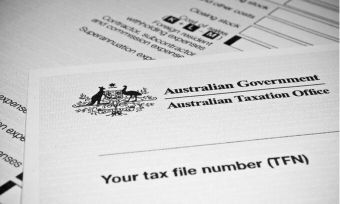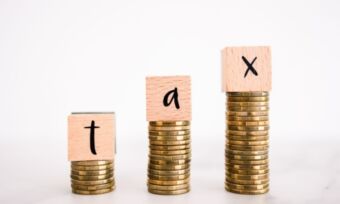The Australian Taxation Office (ATO) has shared key priorities it will be watching at tax time this year. So, what’s in store for us and how can Aussies maximise their tax return?
Most Australians who lodge their tax return this year will be hopeful for a healthy tax return. Almost 80% of taxpayers have got money back and the average Aussie tax refund has been thousands of dollars in recent financial years. Initiatives such as the low and middle income tax offset or LMITO – an existing tax offset garnished with a cherry-topping $420 ‘one-off cost-of-living tax offset’ announced in the federal Budget – are hoped to help many of us secure a favourable tax return.
But, with inflation soaring and strong cost-of-living pressures, how can Australians avoid mistakes in lodging their 2022 tax return? And, what will the ATO be watching this tax time?
What is the ATO targeting for 2022 tax returns?
The ATO says it will be focusing on the following four areas with FY21/22 tax returns, due to be submitted after 1 July:
- record-keeping
- work-related expenses
- rental property income and deductions
- capital gains from crypto assets, property, and shares.
 “With many investors buying and selling property, rental income and deductions for investors will be in the spotlight for the ATO this year,” said Canstar’s Editor-in-Chief, Effie Zahos.
“With many investors buying and selling property, rental income and deductions for investors will be in the spotlight for the ATO this year,” said Canstar’s Editor-in-Chief, Effie Zahos.
“Work-related expenses will also be in focus, during a year many Aussies have transitioned from working from home back to the office, or even to a new ‘hybrid’ home and office working arrangement after COVID-19.”
Capital gains from crypto assets are again in focus, following the ATO’s crackdown on this area in 2021.
How can you avoid making mistakes on your tax return?
Each year, Australians make common mistakes in lodging and submitting their tax returns.
“Whether you plan on completing the tax return yourself or will be using an accountant or tax agent, it’s important to ensure you declare all your income and take care that you are following the rules when claiming deductions,” said Ms Zahos.
“Even a simple mistake may capture the attention of the ATO.”
The ATO’s Assistant Commissioner, Tim Loh, says there are three golden rules Australians can think about when reviewing their claims:
- You must have spent the money yourself and not been reimbursed.
- If the expense is for a mix of income-producing and private use, you can only claim the portion that relates to producing income.
- You must have a record to prove it.
“It’s important you rethink your claims and ensure you can satisfy the three golden rules,” he said.
5 tax return tips for 2022
Here are five tips to get organised for your 2022 tax return.
1. Be organised
Mr Loh suggested taking some time between now and tax time to start “organising income and deductions records” from throughout the financial year in advance is a good idea. “This will guarantee you a smoother tax time and ensure you claim the deductions you are entitled to,” he said.
2. Get the details right before you lodge your tax return
The ATO says it often sees a lot of mistakes in July, with a rush on lodging returns without including interest from banks, dividend income, and payments from other government agencies and private health insurance providers. This information will become automatically ‘pre-filled’ in most Australians’ tax returns by the end of July. So, it could make your life easier if you wait until late July to lodge your tax return, as you might not need to manually add all your income if you’re planning to submit the return online.
→ Find out more: How to lodge your tax return
3. Consider using a registered tax agent
Using a registered tax agent to help you complete your tax return could help you minimise the likelihood of ATO penalties, as well as help you be less stressed about your tax. Seeking expert financial advice at tax time could help make it easier for you to keep full and accurate records if you are a property investor too, suggested Mr Loh.
“We know a lot of rental property owners use a registered tax agent to help with their tax affairs,” he said.
“As all rental income and deductions need to be entered manually, you can ask your registered tax agent for assistance.”
Any discrepancies can lead to a delay in processing a refund (if you’re eligible for one) and the ATO can contact you or a registered tax agent acting on your behalf to help in correcting the return.
4. Track your tax deductions, including work-related expenses, all year
For work-related deductions, think about keeping track of these using the myDeductions tool in the ATO app. Or, you could use the tracking tools available in a budgeting and savings app, like the Canstar app (powered by Frollo) to track your tax-deductible expenses throughout the year.
5. Understand what buying and selling crypto could mean for your taxes
Cryptocurrency is a popular investment asset, but buying, selling or exchanging digital coins or assets without understanding the potential tax implications is risky.
Importantly, if you dispose of an asset such as property, shares, or a crypto asset, such as by selling crypto or non-fungible tokens (NFTs), you will need to calculate a capital gain or capital loss and record it in your tax return. You also can’t offset any crypto losses against your salary or wages.
“Through our data collection processes, we know that many Aussies are buying, selling or exchanging digital coins and assets so it’s important people understand what this means for their tax obligations,” said Mr Loh.
Cover image source: Lemonsoup14/Shutterstock.com
This content was reviewed by Editorial Campaigns Manager Maria Bekiaris and Sub Editor Tom Letts as part of our fact-checking process.







Share this article